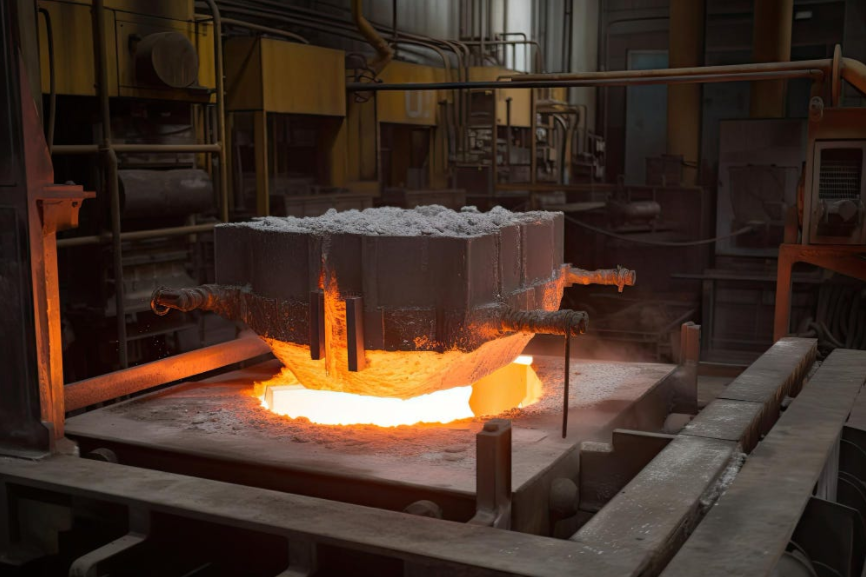Aluminum casting molds are an essential component of the manufacturing industry, especially in the production of complex parts and components for various applications. These molds are used to create precise and consistent shapes that meet the requirements of a wide range of industries, from aerospace and automotive to electronics and medical devices. In this article, we will explore the world of aluminum casting molds by examining the techniques used, the applications they serve, and the innovations that are shaping the future of this industry.
Techniques Used in Aluminum Casting Molds
The process of aluminum casting involves melting aluminum alloys and pouring the molten metal into a mold to create the desired shape. The mold is then allowed to cool and solidify, after which the part is removed from the mold. There are several techniques used in aluminum casting molds, including:
1. Sand Casting: This technique involves creating a mold by packing sand around a pattern of the part to be cast. The sand is then removed, leaving a cavity in the shape of the part. The molten aluminum is poured into the cavity, and once it cools and solidifies, the sand is broken away to reveal the finished part.
2. Investment Casting: Also known as lost wax casting, this technique involves creating a wax pattern of the part to be cast. The wax pattern is then coated with a ceramic shell, which is heated to remove the wax and harden the ceramic. The ceramic shell is then filled with molten aluminum, and once it cools and solidifies, the ceramic is broken away to reveal the finished part.
3. Die Casting: In this technique, a mold is created from two hardened steel dies, which are designed to create the desired shape. Molten aluminum is injected into the mold at high pressure, and once it cools and solidifies, the dies are opened to reveal the finished part.
Applications of Aluminum Casting Molds
Aluminum casting molds are used in a wide range of industries, including:
1. Aerospace: Aluminum is a lightweight and strong material that is ideal for aerospace applications. Aluminum casting molds are used to create parts for aircraft and spacecraft, including engine components, landing gear, and structural parts.
2. Automotive: Aluminum casting molds are used to create engine blocks, transmission housings, and other components for automobiles. Aluminum is a lightweight and durable material that improves fuel efficiency and reduces emissions.
3. Electronics: Aluminum casting molds are used to create parts for electronic devices, including housings, heat sinks, and connectors. Aluminum is an excellent conductor of heat and electricity, making it ideal for electronic applications.
Innovations in Aluminum Casting Molds
The aluminum casting mold industry is continually evolving, with new technologies and innovations that are shaping the future of this industry. Some of the latest innovations include:
1. 3D Printing: 3D printing allows for the creation of complex molds with intricate geometries, which were previously impossible to achieve using traditional methods. 3D printing also reduces lead times and costs associated with creating molds.

2. High-Pressure Die Casting: High-pressure die casting allows for the creation of complex parts with thin walls and tight tolerances. This technique involves injecting molten aluminum into a mold at high pressure, which results in a high-quality surface finish.
3. Additive Manufacturing: Additive manufacturing involves building up a part layer by layer using materials such as metal powders. This technique allows for the creation of complex parts with unique geometries and reduces waste compared to traditional manufacturing methods.
Conclusion
Aluminum casting molds are an essential component of the manufacturing industry, serving a wide range of applications and industries. The techniques used in aluminum casting molds, including sand casting, investment casting, and die casting, allow for the creation of precise and consistent shapes. Innovations in the industry, such as 3D printing, high-pressure die casting, and additive manufacturing, are shaping the future of this industry, and we can expect to see continued growth and development in the years to come.
-

- Custom-made metal parts macbook middle board produced
-

- Детали БПЛА для тиксомолдинга из магниевого сплава
-

- OEM die casting components for automotive Seat frame
-

- Велосипед Freehub 12/14/16 дюймов Детский велосипед Low Rider Bikes Детский велосипед из магниевого алюминиевого сплава 3-8 лет В наличии
-

- Magnesium alloy die-casting Auto parts controller housing
-

- Корпус силового теста из магниевого сплава Thixomolding

 0086-750-5616188
0086-750-5616188 +86 13392089688
+86 13392089688 sales@zhongmei-tech.com
sales@zhongmei-tech.com







